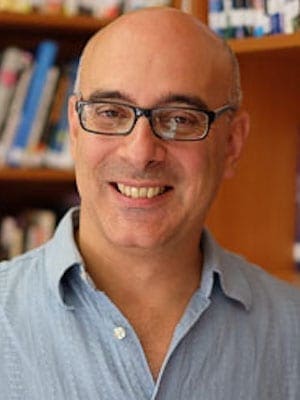I visited Washington, D.C., recently with Sheikh Muhammad Abou Zaid, president of the Sunni Religious Court of the city of Saida in South Lebanon.
The central piece of our visit was the National Prayer Breakfast, but our hosts organized meetings and visits with members of Congress and other people of influence in the city.
In a world of discord and conflict, our duet is a parable, even though, from a Lebanese perspective, it is not exceptional. Nevertheless, it is good to remember how important such relationships are.
We are all at a loss about Syria. How did a movement, so hopeful as to once have been called the “Arab Spring,” slip into such a dark and miserable abyss as what we are currently witnessing?
How did a struggle for freedom from absolutist power turn into a bloody conflict between multiple claims to absolutist power, sometimes in the name of absolutist forms of Islam, intolerant of religious diversity, even if Islamic?
It would not do justice to the Syrian conflict to call it a “religious conflict.” After all, “jihadi” Muslims have been the last to join the battleground. They are certainly not the cause of the conflict.
But my intent is to reflect on the growing fear of Islam and Muslims that the present Syrian conflict has been provoking among Christians, both in Syria and the region and, to some extent, throughout the world.
Arab Christians have been suffering from a “minority complex” for centuries. It has paralyzed our ability to launch creative initiatives and nearly neutralized our capacity to be a part of our respective nations’ stories.
How can an Arab Christian be a part of his or her country’s future when they feel like a stranger, a guest (what a shameful use of the word), largely unwelcome in the lands that their ancestors have inhabited since the beginning of memory?
The last thing we need to be told is that we need protection. Protection from what? From whom?
Strangers, guests, refugees and vulnerable groups without a support network need protection.
In times of war, anyone not carrying a weapon needs protection. But it is offensive to single out Middle East Christians as needing protection, especially from their Muslim neighbors.
The other side of the coin is that when violent “jihadi” Muslims begin to operate in a certain area all inhabitants of that area need protection.
When hell breaks loose, people need to stand up together in solidarity and they need international solidarity and protection.
Falling for the fallacious argument of the Syrian regime that we have the choice between the current leadership or something worse makes Christians of the Middle East twice victims – once of violent extremists, and another time of the international community that robs us of the right to play a significant role in our nations’ futures.
In the current mood, my presence in the company of Sheikh Muhammad in meetings with influential leaders is a powerful symbol.
Our friendship rehumanizes us, and that is something that no one can take away.
So when the document “Christian Witness in a Multi-Religious World: Recommendations for Conduct” – published by the World Council of Churches, Pontifical Council for Interreligious Dialogue and World Ecumenical Council – states, in principle 12, “Christians should continue to build relationships of respect and trust with people of different religions so as to facilitate deeper mutual understanding, reconciliation and cooperation for the common good,” it is not mere theory and high ideal.
This reconciling principle of relationships can also be expanded beyond the interreligious sphere into the intercultural one.
My friendship with Sheikh Muhammad Abou Zaid has transformed not only my understanding of Islam but also of myself and of God.
I know from my conversations with him that it has done the same for him.
He also tells me that our recent trip, which was his first visit to the United States, has transformed profoundly his understanding of the West and of America in a very positive sense.
Is this all surprising? Why should it be? There is profound theology behind principle 12.
The life of Jesus was the most radical revelation of God’s relational character. The God who encounters us in Jesus is not one to reveal himself by sending us an email or a tweet.
I do not pretend to resolve this mystery, but surely there is profound significance in that God chooses to reconcile us to himself by entering into a personal relationship with us.
There is much for us to learn and to put into practice as peoples from different religions and different cultures and hemispheres.
There is no more powerful manifestation of the church’s witness for us to practice in the world today than to engage in genuine loving relationship with people who would define themselves as different from us.
It is the key to reconciliation and the key to happiness.
 Martin Accad is director of the Institute of Middle East Studies at Arab Baptist Theological Seminary in Beirut. A longer version of this column first appeared on the IMES blog and is used with permission. Martin’s earlier reflections on the Syrian crisis can be found here and here.
Martin Accad is director of the Institute of Middle East Studies at Arab Baptist Theological Seminary in Beirut. A longer version of this column first appeared on the IMES blog and is used with permission. Martin’s earlier reflections on the Syrian crisis can be found here and here.
Editor’s note: EthicsDaily.com has produced two documentaries on interfaith engagement, focused on finding common ground to advance the common good – “Goodwill for the Common Good” and “Different Books, Common Word.” Numerous articles on interfaith engagement are available here.

